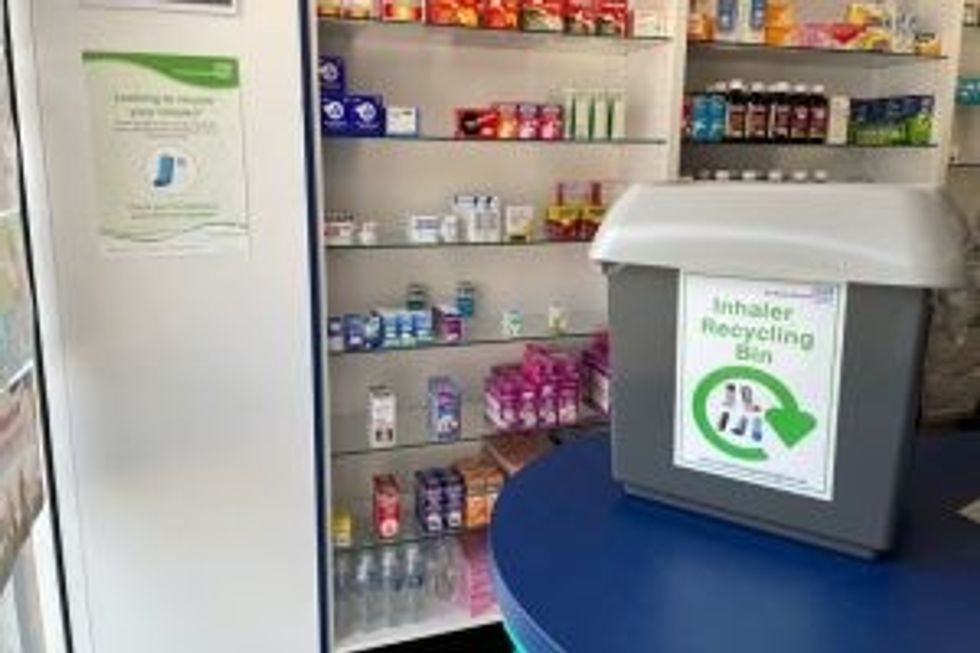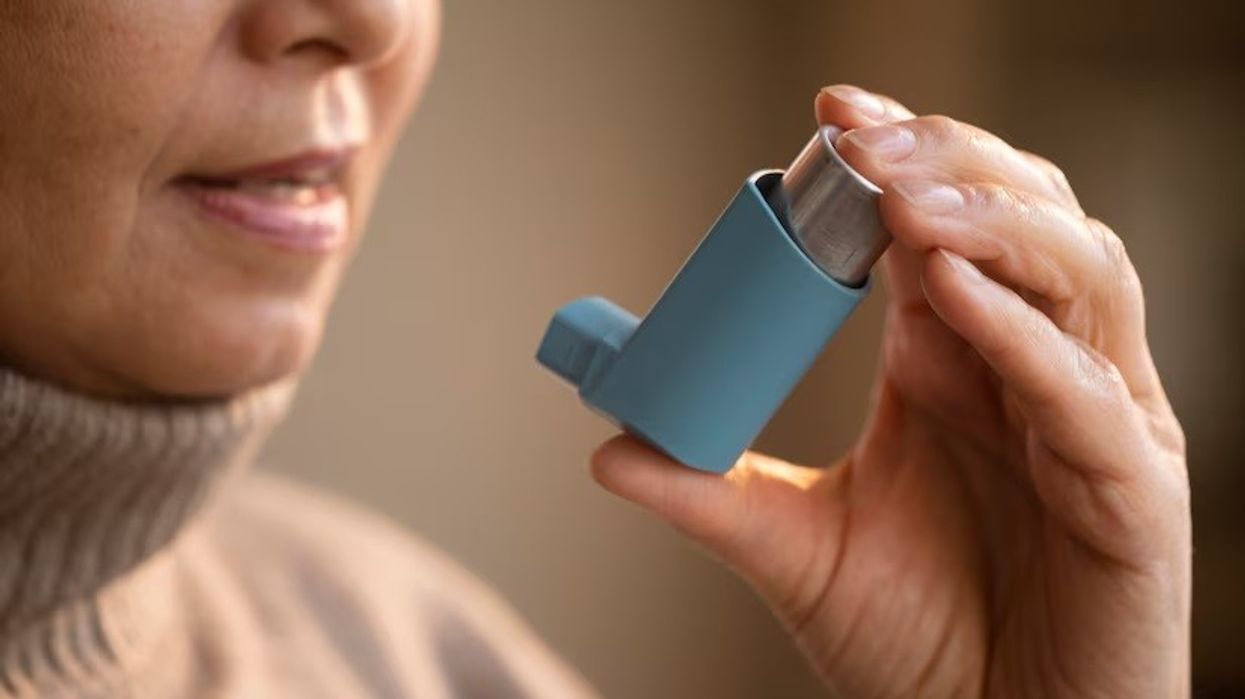Inhalers are estimated to account for three per cent of the overall NHS carbon footprint
Several pharmacies have joined the inhaler recycling scheme in Wolverhampton, West Midlands, to support NHS England’s Greener NHS programme, which aims to achieve net zero emissions by 2040.
It is part of a collaborative working initiative between the Royal Wolverhampton NHS Trust and AstraZeneca UK Ltd, supported by the Black Country Integrated Care Board and Wolverhampton City Local Pharmaceutical Committee.
Under this scheme, old and used inhalers are recycled and transformed into new products, such as coat hangers and waste bins.
Simon Evans, group chief strategy officer for The Royal Wolverhampton NHS Trust, emphasised the importance of prioritising the reduction of carbon footprint while maintaining high-quality care, to protect the planet for future generations.
“The Trust has already made significant achievements in several areas including the physical estate, clinical services, waste recycling, catering and medicines – with this inhaler recycling scheme from pharmacy being the latest string to our bow,” he said.
Janet Smith, head of sustainability for the Trust, noted that the waste team will pick up full bins on their usual routes around the city to avoid extra driving and emission of additional CO2 into the atmosphere.
Inhalers are estimated to account for three per cent of the overall NHS carbon footprint. There are different types of inhalers - short-acting beta-agonist (SABA) inhalers for immediate relief of asthma symptoms, metered dose inhalers (MDI), dry powder inhalers (DPI), and soft mist inhalers (SMI). Collectively, these inhalers contribute to over 200,000 tonnes of carbon, according to the NHS.
The propellants used in MDI inhalers contain hydrofluorocarbons (HFCs), which are potent greenhouse gases. The Royal Wolverhampton NHS Trust has cautioned that improper disposal of these inhalers could lead to the gradual leakage of the gases over time, ultimately contributing to global warming.
In 2019/20, more than 12 million inhalers were prescribed in the Midlands region.
People are encouraged to return old or used inhalers to a participating hospital or a pharmacy in Wolverhampton. At these sites, dedicated recycling bins are provided along with accompanying guidance that explains “what can and cannot be recycled.”

The inhaler recycle bins are placed at New Cross and Cannock Chase Hospitals at these dedicated sites:
- Lloyds Pharmacy at New Cross Hospital
- Inside the Emergency Department entrance at New Cross Hospital
- Respiratory Centre at New Cross Hospital
- Lloyds Pharmacy at Cannock Chase Hospital
- Main reception at West Park Rehabilitation Hospital
Pharmacies that have joined the green initiative in Wolverhampton include Superdrug, Ettingshall Pharmacy, Mayfield Pharmacy, Morrisons Supermarket, Millstream Pharmacy, Superdrug Pharmacy, Central Pharmacy, Bradley Chemist, Upper Green Pharmacy, Lower Green Health Centre, The Pharmacy Clinic, Alpha Pharmacy, Hawthorne Chemist, and Northwood Pharmacy. Check the full list of pharmacies here.
While dropping inhalers in the recycling bins, individuals should ensure that the items are clean and not packaged in plastic bags. Additionally, people are advised to refrain from dropping the following items into the bins: inhaler spacers, any other medications, empty strips from tablets and capsules, the inhaler packaging box, paper, cardboard, and other types of plastic.













